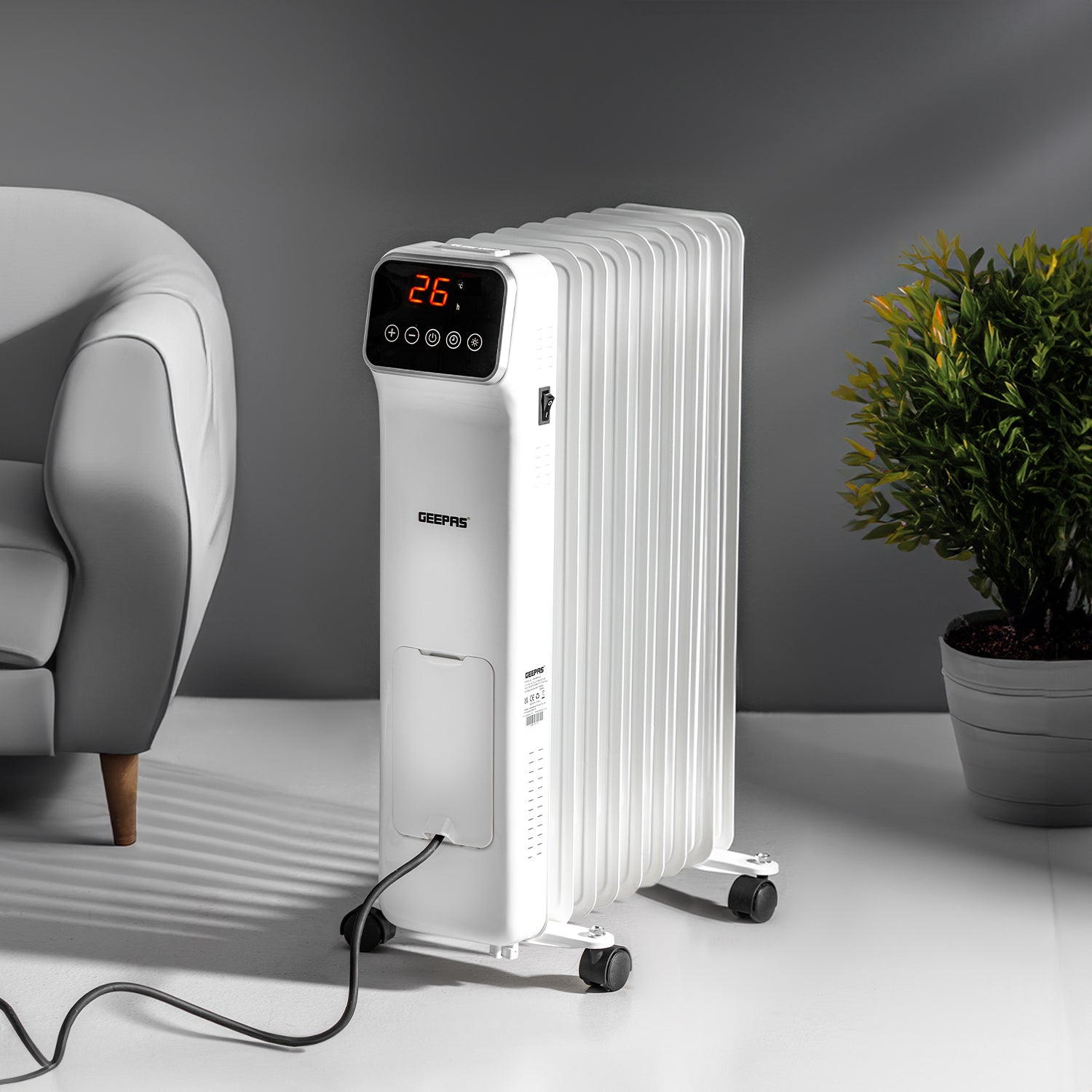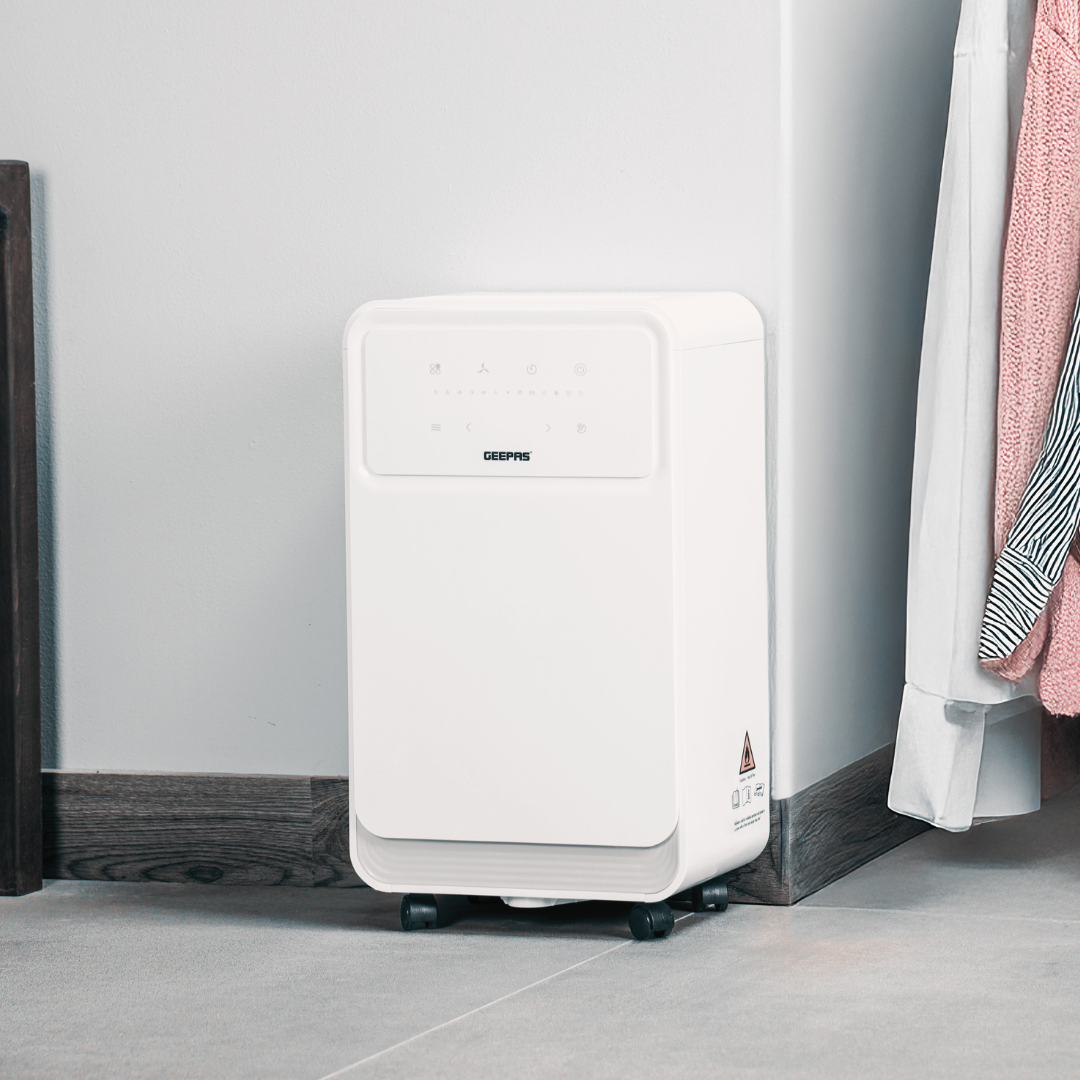When it comes to heating homes, particularly during the chilly winter months, choosing the right type of heater is essential. With so many options available, the debate between oil-filled radiator heaters and fan heaters remains popular. Each offers unique benefits, and understanding their differences can help you make an informed decision that suits your heating needs, budget, and home environment.
In this guide, we'll explore the key features, efficiency, and suitability of both oil-filled and fan heaters so you can decide which one best fits your home.
Understanding Oil-Filled Radiator Heaters
Oil-filled radiator heaters are portable heaters designed to emit a consistent and prolonged warmth. Though they use electricity to heat up the oil inside the radiator, it doesn't need to be replaced. The oil serves as a heat reservoir, gradually warming up the radiator's surface and releasing heat into the room.
Key Features Of Oil-Filled Radiator Heaters
- Efficient Heat Retention: One of the standout features of oil-filled heaters is their ability to retain heat long after they're switched off. Once the oil is heated, it continues to radiate warmth, making them highly efficient in terms of energy consumption.
- Quiet Operation: Unlike fan heaters, oil-filled radiators don't rely on a fan, so they are virtually silent when in operation. This makes them ideal for bedrooms and living rooms where you want undistributed comfort.
- Even Heat Distribution: They provide a steady and even distribution of heat, which is less likely to cause hotspots or sudden changes in room temperature.
- Temperature Control and Safety: Oil-filled heaters often come with adjustable thermostats, timers, and safety features such as overheat protection and tip-over switch, making them a safe choice for households with children or pets.
Advantages Of Oil-Filled Radiator Heaters
- Long-Lasting Warmth: Suitable for prolonged use and stays warm for hours, even after being turned off.
- Energy Efficient: Retains heat, reducing the need to keep the heater on constantly and helping you save on energy costs.
- Silent Operation: Ideal for undisturbed warmth in bedrooms, home office, or living rooms.
- Low Maintenance: These heaters require minimal maintenance and have a long lifespan.
Disadvantages Of Oil-Filled Radiator Heaters
- Slow To Heat Up: It may take some time to feel the warmth as oil-filled radiators heat up gradually.
- Heavy and Less Portable: Oil-filled heaters are generally bulkier and heavier, although they often come with wheels to help with mobility.
- Higher Initial Cost: The price tag for an oil-filled radiator can be higher than a fan heater, but the energy savings often compensate for this over time.
Exploring Fan Heaters
Fan heaters use an electric element to generate heat, which is then dispersed into the room using a fan. These heaters provide quick, on demand warmth and are perfect for those moments when you need to heat up a space quickly.
Key Features Of Fan Heaters
- Instant Heat Output: Fan heaters are known for their fast heating capability, making them ideal for instant warmth in small rooms or areas that need quick temperature adjustments.
- Compact and Lightweight: Fan heaters are generally compact, portable, and lightweight, making them easy to move around the house.
- Adjustable Settings: Most fan heaters offer multiple heat and fan speed settings as well as an oscillating feature to distribute heat more evenly.
- Affordability: Fan heaters are usually more affordable upfront, making them a budget-friendly heating option for many households.
Advantages Of Fan Heaters
- Quick Heat: Ideal for quickly warming up small spaces such as bathrooms or home offices.
- Portable and Compact: Lightweight design makes them easy to carry from room to room.
- Budget-Friendly: Typically more affordable than oil-filled radiators, making them accessible for various budgets.
- Versatile Use: Many fan heaters have settings for year-round use, acting as a fan in warmer months.
Disadvantages Of Fan Heaters
- Noisy Operation: Fan heaters can produce noticeable noise due to the fan mechanism, which may not be suitable for bedrooms or quiet spaces.
- Less Energy Efficient: Fan heaters need continuous power to keep producing heat, so they're not ideal for prolonged heating.
- Quick Temperature Drop: Once switched off, fan heaters cool down rapidly, so the room may lose warmth quickly.
Which Heater Is Better For You?
The UK climate often requires a heater that can provide steady warmth, especially during the colder months. Here's how each heater fares under typical conditions:
Oil-Filled Radiators For UK Winters
For those who need a consistent source of warmth without constant power consumption, an oil-filled radiator heater is often the best option. It is suitable for longer periods of use and can effectively warm bedrooms, living rooms, and offices. The quiet operation makes it ideal for homes where noise levels need to be minimal, such as homes with children or night workers.
Fan Heaters For Quick Warm-Ups
For short bursts of heat, fan heaters are perfect. They are excellent for heating up small spaces quickly like bathrooms or unheated spare rooms. For homes that require quick but temporary warmth, fan heaters can be a practical choice. However, due to their continuous power consumption, fan heaters may not be as cost-effective for extensive use.
Energy Efficiency and Running Costs
When considering the running costs of an oil-filled radiator vs fan heaters, it's crucial to factor in how each heater uses electricity.
- Oil-Filled Radiator Running Costs: Oil-filled radiators are generally more energy-efficient for prolonged use. They retain heat even after being switched off, which can lead to lower energy consumption overall. If used strategically, an oil-filled radiator can save on electricity bills in the long run.
- Fan Heater Running Costs: Fan heaters, though less expensive to purchase, may end up consuming more electricity due to their constant need for power. This can lead to higher energy bills if used for extended periods.
Choosing The Right Heater For Your Needs
If you're considering adding a heater to your home, your decision may depend on factors such as the room size, frequency of use, and desired comfort level.
- For Larger Rooms and All-Day Heating: Oil-filled radiators are best suited for larger spaces or rooms where a quiet, long-lasting warmth is desired.
- For Small Spaces and Quick Heat: Fan heaters are ideal for small spaces and those who only need heat for a short period, such as morning showers or quick warm-ups in workplaces.
Conclusion: Oil-Filled Radiator Heater or Fan Heater?
When it comes down to oil-filled radiator heaters vs fan heaters, each type offers unique benefits tailored to different heating needs.
- Oil-Filled Radiator Heaters provide quiet, efficient warmth for extended use, making them a great choice for most homes where rooms require steady, ongoing heat.
- Fan Heaters, on the other hand, are perfect for on-the-spot heating needs, offering a quick solution for smaller spaces or times when you need an immediate burst of warmth.
Whether you're looking to cosy up in your bedroom, keep your home office warm, or add a touch of heat to your caravan, this guide should help you choose the best heater for your needs.





